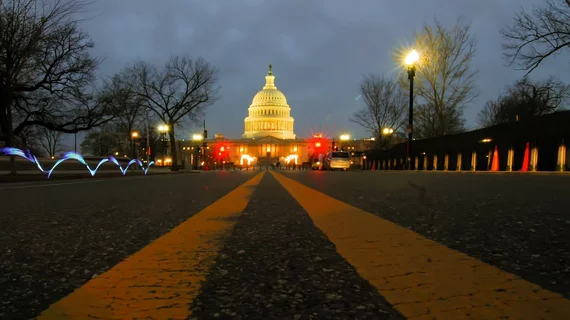Lawmakers push feds to fix key surprise billing provision that has enraged radiologists
Bipartisan members of the U.S. House are urging the administration to quash a key piece of efforts to address surprise medical bills that has enraged radiologists and other provider groups.
Reps. Tom Suozzi, D-N.Y., and Brad Wenstrup, R-Ohio, recently started circulating a letter addressed to Health and Human Services and other agency heads, asking for their intervention. The two are asking other members of Congress to join them in fighting to fix the interim final rule, released on Sept. 30.
Lawmakers approved the No Surprises Act late last year, with the feds recently beginning the rulemaking process. Suozzi and Wenstrup are concerned, however, the rule does not match congressional intent. In particular, the proposal spells out a process to settle out-of-network payment disputes that places too much emphasis on the “qualifying payment amount,” established by health insurers. (Generally, this would amount to the median contracted rate for the same or similar service in the geographic area.)
“This approach is contrary to statute and could incentivize insurance companies to set artificially low payment rates, which would narrow provider networks and jeopardize patient access to care—the exact opposite of the goal of the law,” the two wrote in their draft letter, slated to be sent to leaders in the departments of Labor, HHS and Treasury. “It could also have a broad impact on reimbursement for in-network services, which could exacerbate existing health disparities and patient access issues in rural and urban underserved communities.”
Instead, the two believe the dispute-resolution process should use a variety of factors in settling such payment disputes. Those should include quality of outcomes, market share, complexity of services, case mix, and prior contract history between the two sides. Suozzi and Wenstrup note that the original law “expressly directs” arbitrators to consider all such factors.
Their sentiments echo the concerns of numerous other provider groups including the American Medical Association, American Hospital Association and American College of Radiology. ACR shared the draft letter in a Thursday news update and encouraged members of the specialty to contact their representatives to convince them to sign on.
“If the administration’s [independent dispute resolution] approach is fully implemented, the American College of Radiology and others believe this will establish a de facto benchmark payment rate and will result in a downward trend of in-network payment rates and/or physicians being forced out of insurer networks, ultimately making it harder for patients to find in-network care,” the college said Oct. 21.

